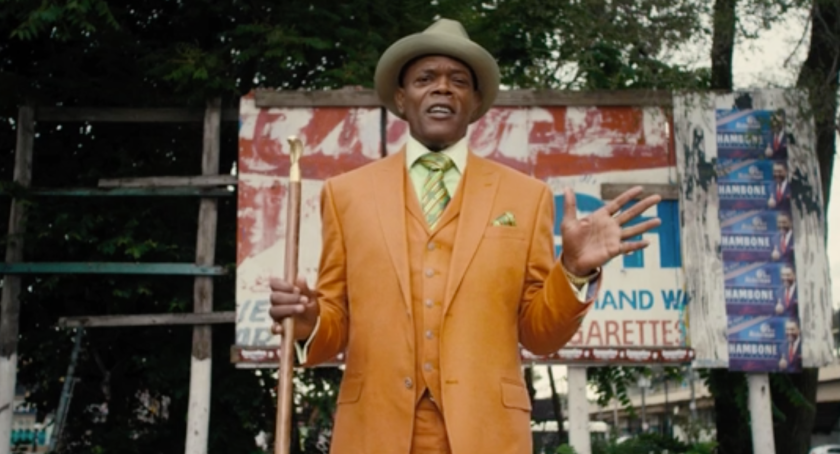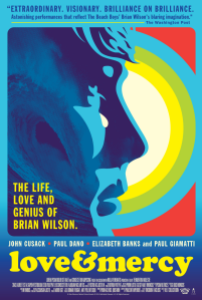 No movie this year is as bold-faced opinionated and timely of a political statement as Spike Lee’s “Chi-Raq.” That’s because movies are rarely this topical, this aggressive or this urgent. The film is littered with names of African Americans the media has been shouting for months, it has numerous hashtag ready catch phrases, it stops the film for a sermon that is essentially a vicious op-ed, and it declares up front that “This is an EMERGENCY” in giant, flashing red letters.
No movie this year is as bold-faced opinionated and timely of a political statement as Spike Lee’s “Chi-Raq.” That’s because movies are rarely this topical, this aggressive or this urgent. The film is littered with names of African Americans the media has been shouting for months, it has numerous hashtag ready catch phrases, it stops the film for a sermon that is essentially a vicious op-ed, and it declares up front that “This is an EMERGENCY” in giant, flashing red letters.
And yet Lee’s film, easily his best in over a decade, is captivating and harrowing because it is so entertaining. “Chi-Raq’s” message of peace and love lingers in the memory because it’s told in rhyming verse, because it has glamorous musical numbers and because the dialogue has more words for sex than you can count. The film’s humor, color and energy don’t make light of a bad situation; it helps make the movie sing and sting.
Lee draws his source material from the Ancient Greek play by Aristophanes “Lysistrata,” in which women of the Spartan warriors refuse sex for their husbands until they put an end to the war and bloodshed. In modern day Chicago, homicides from gang related violence have killed more since 9/11 than the casualties of Americans in Afghanistan or Iraq. Lee uses the South Side and two rival gangs, the Spartans and Trojans, as a backdrop for how the women of Chi-Raq stage a sex strike (“No Peace, No Pussy”, they declare) to end the killings.
But drawing from “Lysistrata” isn’t just a happy accident or a cute framing mechanism to introduce sex into the story. Women in this film become the catalyst for change, and Lee’s use of this play reframes the conversation on gun violence to include gender and sexuality. The film barks that people are dying everyday, “and you want to talk about how women behave?”
Lysistrata (Teyonah Parris) is the girlfriend to the rising rapper and Spartan gang-leader Chi-raq (Nick Cannon), and after a local mother (Jennifer Hudson) begins searching for the killer of her young daughter, Lysistrata stumbles across a successful sex strike in Africa and rallies Spartan and Trojan women to organize and do the same. She leads everyone in a pledge, and they use their sexuality as a weapon, but without killing anyone. In a hilarious and outrageous move they capture a local armory and both force peace talks and rally women around the country and world.
Lee’s politics are relevant on a national stage, but “Chi-Raq” is effective in part because it is localized to these Chicago neighborhoods. The film is highly specific and captures a stark reality that people familiar with watching WGN 9 news will be all too familiar with. Lee even gets inside the culture and color of both this Greek chorus and community. Lysistrata’s outfits alone are worth putting down your guns for, starting in a tight purple cami and ragged cut-off jean shorts before transforming into sexy camo fatigues to show that this really is war.

Samuel L. Jackson is the film’s eloquent and well-versed narrator Dolmedes. His ass was on the first Wheaties box, as he puts it, and Lee sets the tone beautifully by opening the film by freeze-framing it. Dolmedes stands on a stage and halts the chanting crowd behind him in order to explain the film’s Greek tragedy origins and their intention to rhyme everything. One more stat about homicides is like white noise at this point, but when Lysistrata says the men in this city just live by the “bang-bang”, you remember it.
“Chi-Raq” has some incredible set pieces. In one a man wearing Confederate Flag underpants rides a big black cannon and figuratively makes love to his gun. And to end the film Lysistrata and Chi-Raq partake in a sexual showdown broadcast live. But the one that sums up the film best is a sermon given by one of the film’s few white characters, Father Mike Corridan (Chicago local John Cusack). Less a sermon and more a fiery op-ed and call to action, Father Corridan screams repeatedly that “You will not murder our children” and that what’s happening in this city is “self-inflicted genocide.” His words stop the film’s plot in its tracks and boldly assert all of Lee’s politics. It’s bloody, it’s messy, but damn if it’s emotional and devastating.
“Chi-Raq” is as rebellious and invigorating as Lee’s “Do the Right Thing” was in 1989, and as scarily relevant and poignant as “25th Hour” was in 2002’s Post 9/11 New York. But this time he’s taken root in my city, and this truly is an emergency.
4 stars
 As a biopic, “Love & Mercy,” the story on the life of Beach Boys singer Brian Wilson, is a bit unusual. It passes over their surf pop rise to stardom in the early ‘60s in just the credits sequence. It jumps forward and backward in time to when Brian was both a young and middle-aged man on a whim. At times Bill Pohlad’s film is as deeply spiritual and scatterbrained as its subject.
As a biopic, “Love & Mercy,” the story on the life of Beach Boys singer Brian Wilson, is a bit unusual. It passes over their surf pop rise to stardom in the early ‘60s in just the credits sequence. It jumps forward and backward in time to when Brian was both a young and middle-aged man on a whim. At times Bill Pohlad’s film is as deeply spiritual and scatterbrained as its subject.